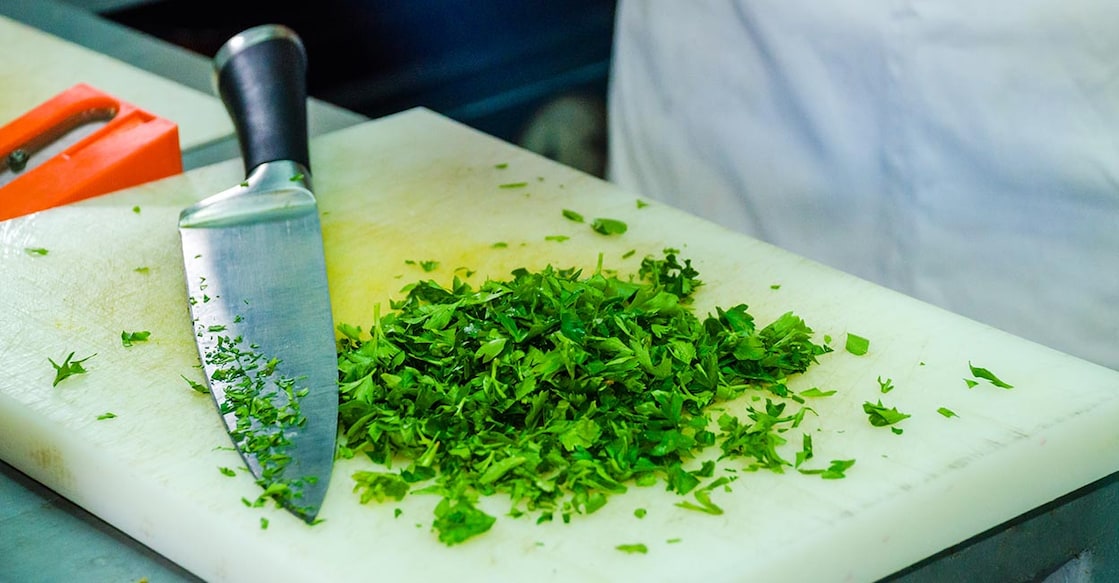Still using plastic cutting boards? Here's why you should ditch them ASAP

Mail This Article
In most kitchens, plastic chopping boards are a common sight. They are affordable, lightweight, and easy to clean, making them a popular option for home cooks and professional chefs alike. However, recent studies have raised concerns about the potential health and environmental risks associated with plastic chopping boards. With growing awareness about microplastics and environmental sustainability, it's time to rethink this kitchen essential. Here’s why you should consider ditching plastic chopping boards and opting for healthier alternatives.
1. Microplastics in your food
One of the primary concerns with plastic chopping boards is the potential release of microplastics into your food. Every time you use a knife on a plastic board, small plastic particles may be scraped off the surface, especially when the board gets worn down over time. These tiny fragments, known as microplastics, are not visible to the naked eye but can easily mix with your food, posing potential health risks.
While the full impact of consuming microplastics is still being studied, research has shown that they can enter the digestive system and accumulate in human tissues. Ingesting plastic over time could lead to inflammation, toxicity, or interference with hormone function. To protect yourself and your family from these risks, switching to non-plastic chopping boards is a safer alternative.

2. Environmental impact
Plastic chopping boards, like other plastic products, contribute to environmental pollution. When discarded, plastic doesn’t biodegrade but rather breaks down into microplastics, which can persist in the environment for hundreds of years. This waste accumulates in oceans, rivers, and landfills, contributing to the global plastic pollution crisis and harming wildlife.
Switching to eco-friendly alternatives such as bamboo, wood, or stainless steel cutting boards can significantly reduce your environmental footprint. Bamboo is a renewable resource that grows quickly without requiring pesticides or fertilizers, making it an excellent sustainable option. Wooden boards, when sourced responsibly, also have a smaller environmental impact compared to plastic.
3. Durability and aesthetics
Plastic chopping boards may seem durable at first, but they often wear out quickly, developing deep grooves and cracks that weaken the structure over time. This not only increases the release of microplastics but also makes them more prone to breaking or becoming discoloured. As a result, plastic boards often need to be replaced frequently, adding to household waste.
Wooden and bamboo boards, by contrast, are known for their durability. High-quality wood boards can last for years with proper care, and even when they wear down, they can be resurfaced by sanding, restoring their original smoothness. Additionally, wooden chopping boards bring a natural, aesthetic appeal to your kitchen, making them a favorite among those who appreciate both function and design.
4. Cost-effectiveness in the long run
While plastic chopping boards are generally cheaper upfront, their tendency to wear out quickly means you may need to replace them frequently. In contrast, investing in a high-quality wooden or bamboo chopping board might have a higher initial cost, but it will last much longer, making it a more cost-effective option in the long term.

Plus, taking proper care of wooden boards is easy. Regularly oiling them with food-grade mineral oil keeps them conditioned and extends their lifespan. Bamboo boards are also low-maintenance, requiring just simple cleaning and occasional oiling to prevent drying or cracking.
5. Healthier for you, better for the planet
Ditching plastic chopping boards is not just about improving your health; it’s also about making more environmentally conscious choices in your everyday life. With plastic waste becoming an ever-increasing global problem, even small changes in your kitchen can have a significant impact. By switching to sustainable alternatives, you’re contributing to reducing plastic waste, lowering your exposure to microplastics, and opting for a cleaner, greener planet.

